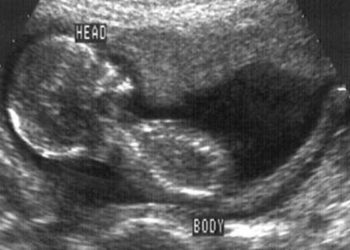AAP releases 2017 recommendations for preventive pediatric health care
The American Academy of Pediatrics (AAP) has released a policy statement for the Periodicity Schedule, a document that addresses updated preventative pediatric healthcare recommendations.
Statement Rundown: The Periodicity Schedule is revised annually to reflect the consensus of the AAP and Bright Futures workgroup and is designed for the care of children who receive competent parenting, have no manifestations of any important health problems, and are developing in manner consistent with healthy children of similar age. Changes have been made to recommendations on hearing, psychosocial/behavioral assessment, depression, maternal depression, newborn blood, newborn bilirubin, sexually transmitted infections (STIs), HIV, dyslipidemia, and oral health.
The updated recommendations have been made in the following domains:
- Hearing: Updates were made to timing and follow-up of hearing screening during infancy. In addition, adolescent risk assessment has changed to screening once during each time period.
- Psychosocial/Behavioral assessment: This has been updated to reflect the need for family-centered care and an assessment of the child’s social and emotional health, caregiver depression, and social determinants of health.
- Depression: In an effort to maintain consistency with USPSTF, adolescent depression screening now begins at 12 years of age.
- Maternal depression: Screenings for maternal depression have now been added at 1-month, 2-month, 4-month, and 6-month postpartum visits.
- Newborn blood: Updates were made to timing and follow up of newborn blood screening recommendations.
- Newborn bilirubin: Screening for bilirubin concentration at the newborn visit has been added.
- STIs: Adolescents shall now be routinely screened for STIs.
- HIV: HIV is now its own sub-heading, separate from STIs, to emphasize its importance. The AAP is recommending universal HIV screening to now occur once between the ages of 15 and 18 years.
- Dyslipidemia: This guidelines has been updated so that screening occurs twice: once between 9-11 years and a second time between 17-21 years of age.
- Oral health: Ensuring that child has a dentist is now to occur at the 12-month and 18-month through 6-year visits. Fluoride supplementation has been added from 6 to 12-month visits and 18-month to 16-year visits.
Click to read the policy statement, published today in Pediatrics
Relevant Reading: AAP Periodicity Schedule
Image: PD
©2015 2 Minute Medicine, Inc. All rights reserved. No works may be reproduced without expressed written consent from 2 Minute Medicine, Inc. Inquire about licensing here. No article should be construed as medical advice and is not intended as such by the authors or by 2 Minute Medicine, Inc.







